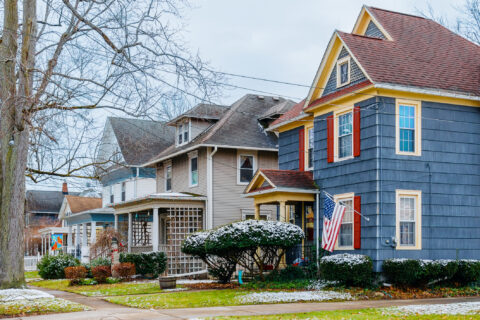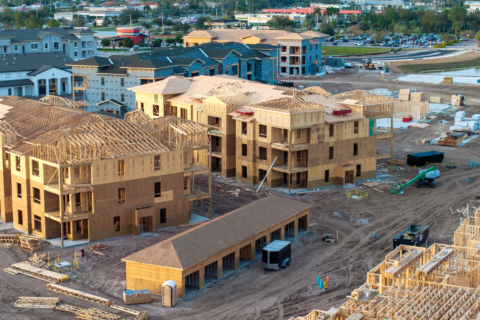Authored by Julia Devin, Mediator and Housing Accord Program Coordinator, Bellevue Conflict Resolution Center, City of Bellevue, WA
In 2021, due to a sharp increase in evictions stemming from the COVID-19 pandemic, Washington State passed SB 5160, an emergency action to address landlord-tenant relations by providing legal representation to tenants in evictions, authorizing landlords access to rental assistance programs, and requiring landlords to offer tenant repayment plans and work with Dispute Resolution Centers to find alternatives to eviction. Established in 1984 under RCW 7.75, 22 Dispute Resolution Centers around the state provide mediation and other conflict resolution services to Washington residents as an alternative to the court system. The Bellevue Conflict Resolution Center in Bellevue, WA has helped its residents resolve conflicts for almost 30 years.
Implementing SB 5160’s two-year emergency program allowed Bellevue’s Conflict Resolution Center to help reframe conversations between tenants and landlords and keep disputes out of court. During this period, the Center served nearly 1,800 Bellevue households and demonstrated a nearly 80% success rate as an eviction diversion program. Unfortunately, with SB 5160 sunsetting in June 2023 and rental assistance waning, eviction filings across Washington have risen dramatically.
According to Bellevue’s 2022 Housing Needs Assessment (PDF), affordable housing throughout the region is in short supply and rising housing costs have led to 27% of residents being housing cost burdened. In turn, landlords are struggling under the weight of lost income, a lengthy eviction process and increasingly restrictive regulations. Often these issues are more acute in low-income and multi-family housing communities.
Providing an Alternative to Eviction
To meet this moment, the city launched the Housing Accord Program in the fall of 2023. Growing out of Bellevue’s success resolving landlord/tenant conflicts during the pandemic, and building on the relationships formed with property managers, social service agencies and others, the Housing Accord Program provides free, confidential, voluntary and impartial conflict resolution services to landlords and tenants alike. Through individual coaching, phone conciliation and referrals, Housing Accord staff and trained volunteers help parties find options to avoid the long and costly eviction process.
Despite demonstrating during the pandemic that early intervention and conflict resolution help keep people out of court (PDF), many cases are now referred to Housing Accord only after a tenant is more than one month behind in rent. This makes it difficult for a tenant to get caught up on past-due rent, which can lead landlords to initiate legal eviction proceedings. At this late stage, finding a resolution is difficult, at best.
An Early Referral Pilot
Bellevue’s participation in the NLC’s Eviction Prevention Learning Lab resulted in an early referral pilot program (PDF) designed to proactively increase early referrals to conflict resolution services.
For five months, from November 2024 – March 2025, property managers in 24 multi-family housing communities, with a total of 3,614 units, provided a Housing Accord Program flyer with every 30-day “Pay or Vacate” eviction notice they gave to tenants (983 in all). Each month, property managers tracked how many notices were distributed and how many were resolved on-site and reported the data to Housing Accord.
Similarly, Housing Accord tracked the number of landlord/tenant cases it received, the number of cases that were resolved or required no further action and the number that remained unresolved.
While tracking individual case outcomes wasn’t possible and cases from pilot properties were not always identified, the resulting data still showed the effectiveness of early referrals and conflict resolution as an alternative to eviction.
Key Findings from the Bellevue Early Referral Pilot
- Property level intervention helps prevent evictions. Almost half (41%) of the notices (406 out of 983) were resolved without further escalation, external intervention or legal action, suggesting that direct, on-site intervention by property managers plays a significant role in helping prevent evictions.
- Increase in tenant calls to the Bellevue Conflict Resolution Center. Early referrals led to more tenants working with the Center to find a resolution and avoid eviction than in previous periods.
- Increase in cases resolved or requiring no further action. Only 10% of the cases referred to the Center remained unresolved and at risk of eviction. The other 90% were either fully resolved or required no additional action from the conflict resolution center, often because tenants had a plan to resolve their housing issue on their own. The early referral pilot data shows an increased resolution rate over previous periods, and highlights conflict resolution as an effective tool to help avoid evictions and stabilize households.
- Coaching played a critical role in empowering residents to resolve conflicts. In most cases (72%), Bellevue’s Conflict Resolution Center coached tenants on how to navigate their situations, sort through options and make a plan. Individual coaching proved to be the most effective approach, with up to a 96% success rate compared to a 57% success rate for conciliations, which involve working with both landlords and tenants to negotiate a resolution.
- Forming strong partnerships is key. Forming strong partnerships is a key element of Bellevue’s Conflict Resolution Center’s success. During the Early Referral pilot, the Center partnered with the local Housing Authority and a large Property Management company, both of which supported conflict resolution as a better option than eviction in certain cases. Housing Accord staff also built relationships with on-site Property Managers, social service agencies and community groups. These community connections are important to gaining tenants’ trust. As a diverse community with a large immigrant population, some residents may be wary of a government entity getting involved in their private life. Through strong community partnerships, cultural organizations can assure tenants that Bellevue’s Conflict Resolution Center can be trusted, creating a “chain of trust” that helps parties find a resolution.
Going Forward
The early referral pilot demonstrated measurable improvements in resolution success, reinforcing the value of proactive intervention in maintaining tenant stability and reducing eviction rates.
Going forward, continuing multi-agency collaboration and data-informed strategies will be key to sustaining progress and expanding best practices across housing programs.









